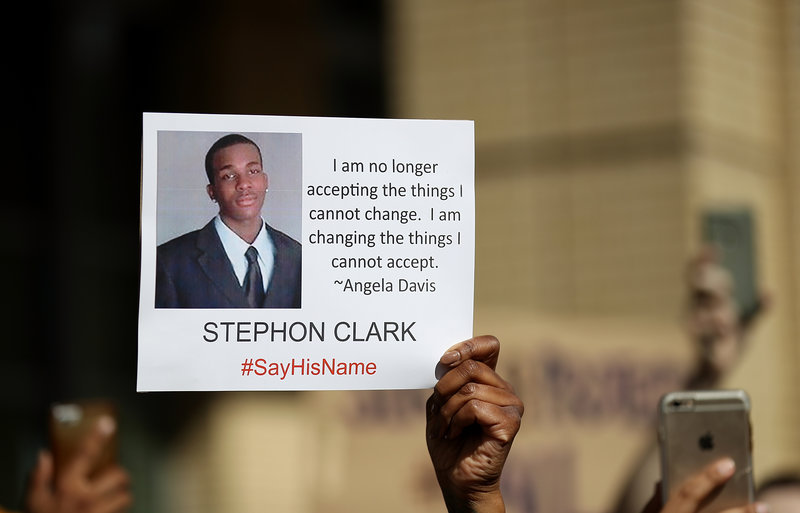![]()
The Sacramento District Attorney announced March 2nd that the city would not file charges against police officers responsible for Stephon Clark’s death last March. Anne Marie Schubert, career prosecutor and forensic expert, said in her legal review that officers were justified in fearing for their lives and that they had not committed any crimes.
Clark’s death has been a high-profile case in the Sacramento area since the incident on March 18, 2018. Officers reported to a neighborhood after a resident called in a hooded man vandalizing cars. A police helicopter spotted Clark hopping over a fence into the backyard of a house. Officers later found out this was his grandmother’s residence and he was staying with her.
After yelling at Clark to raise his hands, officers mistook the iPhone in his hand for a gun and fired twenty times. Clark died within three to ten minutes from internal bleeding, and reports from the official autopsy found that he had eight bullet wounds, six of which struck him in the back. Officials waited five minutes after shooting him before approaching him and beginning CPR. Fire officials pronounced Clark dead on the scene.
Clark’s family has since taken legal action, with a lawsuit seeking “at least $20 million from the city of Sacramento and the two police officers,” reports the Sacramento Bee. “The lawsuit, filed on behalf of Clark’s grandparents, parents and two young sons, was filed in U.S. District Court under federal civil rights laws.”
Following Schubert’s decision to abstain from pressing charges, hundreds of protesters gathered at the state capitol building. Clark’s brother, Stevante Clark, told those gathered at a vigil that “this could be you. This could be your family.”
As controversy over racial profiling and police brutality continues, Clark’s death is the latest in a trail of tragic deaths that have included Trayvon Martin, Philando Castile, and Michael Brown. Daniel Bennett, head of JBU’s Political Science department, observes that Clark’s death and the ensuing controversy follows this pattern, with “the police saying one thing, and the victim’s family saying ‘that’s not the whole story.’”
Much like the Sacramento Police Department is doing now, many police departments have been forced to take a closer look at incidents involving the shooting of black men. The Cleveland Police Department, for instance, announced 400 days after the death of 12-year-old Tamir Rice that they would not be pressing charges against the officer who had shot him. Bennett said that this is one of many “instances where law enforcement are perceived as…overly aggressive with African-American males.”
Seth Billingsley, a political science and business student, said that in this case, “the idea of innocent until proven guilty was overruled.” He believes that many police shootings involving black males involve a combination of aggressive racial bias within and militarization of police forces.
As turmoil following Clark’s death and his family’s lawsuits continues, Bennett said that there are many ways for students to make their voices heard. He encourages students to follow news from multiple reputable sources and be willing to have “tough conversations…with someone with different physical characteristics.”





